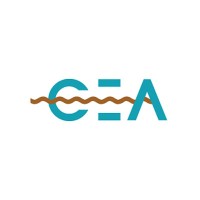
It can be difficult to write a creative brief. Writing a creative brief is a daunting task. You need to communicate the vision of the client and avoid using jargon. The brief must be clear, concise and understandable so that the design team can solve the client's problem. It should not provide a solution but rather a challenge to the design team. It should be a brief that is crafted with care and creativity to solve the client's problem.
Develop a key consumer advantage (KCB).
To focus your marketing efforts, create a creative short that addresses a single benefit. One key consumer benefit may be a feature or benefit that the audience is looking to gain. A key benefit or pain point is the ultimate goal of a project, or the feeling that you want your audience to have after using a product or service.
Be sure to research the competition and analyze their products or services. Also, consider their target audience when creating a creative brief. This will allow you to narrow the scope of your search and help you determine your company’s niche in this market. Develop a KCB. This is a key message that describes the solution your product or service will provide to customers. Include testimonials and narratives in your creative brief.

Include deliverable dates
Be sure to include delivery dates and deadlines in your creative brief. This will avoid any confusion later. You should also include brand guidelines as well as internal messaging. Your creative team will achieve your goals better if you provide more information. You should include the deadline and any revisions or approvals that you require. Remember to add the delivery dates for each stage.
You should also include a description of your target audience, competition, and the market in which your company operates. It is important to provide a brief description that is concise and includes your company's branding messages. A clear and concise brief for your creative project will save you from endless revisions. It will also help your agency to be as specific as possible about all the information you have provided.
Include brand guidelines
Your creative brief should include brand guidelines. This will ensure that your work is consistent and in tune with the brand's values. These guidelines will help the designer get to know the brand's vision and voice so that they can create work that is consistent with it. Here are some guidelines for including brand guidelines into your creative brief. These guidelines can be used to create your campaign brief. It should contain these five elements. This guideline will ensure that you don't leave any detail out of your creative brief.
Your creative brief should convey a clear understanding of your brand. However, it shouldn't go into too much detail. It should provide a concise overview of the brand and the intended audience, with single paragraphs detailing the goals. It should also include background information on the brand, including the target audience. If the brand is not known by the creative team, they should be in a position to learn and complete it. The brief should also contain the brand guidelines, and the deliverables.

Include client's voice
When developing creative briefs for your clients, include their voice. This is often where the hardest part of a creative brief is. It is not uncommon to have so many things included that it can seem overwhelming. Here are five reasons why projects sometimes fail. Although not all these reasons can be attributed to the creative brief, they all stem from a conflict regarding the project's creative components. Here are some tips that will help you craft a brief that will be appealing to your clients.
Create a creative brief that contains the main elements of the project. This will help you to understand the client's voice. Be sure to include demographic information and behavioral insights about your target audience. This will enable your team to develop a solid content strategy. Your messaging must be persuasive and motivate your target audience to take action. Include the client's voice, tone, style, and design in your creative brief.
FAQ
What happens when the consultant is done?
After the consultant completes his/her work, the final report will be submitted detailing the findings of their work. This report details the project timeline, deliverables, as well any other pertinent information.
Then, you'll review the report and decide whether the consultant met your expectations. If it does not, you can ask for changes or terminate the contract.
How do I get clients for my consultancy business?
Find an area that you are passionate about. It can be anything you like, including public relations or social media. If this is the case, it may be worth starting small by focusing on a niche market such web design. Once you've found this niche, make sure you understand what makes it tick. What problems does it solve? What problems can it solve? But most importantly, what can you do to help them?
You can also try approaching businesses directly - perhaps they need someone who understands SEO or content creation, or maybe they just want to know where to go for advice on social media strategy.
You can also offer your services at events such as networking nights and conferences, if all else fails. You'll get to know many potential clients without spending money advertising.
What was the origin of modern consultancy?
The first consultants were accountants that helped companies manage finances. They became known as "accounting consultants." This was because they had become very skilled at managing financial information. The role soon expanded to include other areas, including human resources management.
The French word meaning "to advise" in French is what gave rise to the term "consultant". This term was originally used by businessmen to denote someone who could give guidance on how to run an enterprise. Even today, many business owners still use "consultant" when referring to professional advisors.
Can anyone become a consultant
A consultant is someone who assists you in achieving your goals by offering advice and suggestions on how to achieve it faster, cheaper, and so forth.
Consulting can be a great way to solve problems, make informed decisions, and work with others.
Consultants are often hired for specific projects or tasks.
In reality, consultants are generally paid hourly or daily rates and not per project.
What qualifications do you require to become a Consultant?
You don't just need to have a MBA, you also need to demonstrate your ability as a business consultant. You must have at least two years' experience working in consulting and/or training within a large company.
It is essential that you have experience working closely with senior management on strategic development projects. This will require you to be comfortable sharing your ideas with clients and getting their buy-in.
A professional qualification exam, such as the Certified Management Consultant (CMC), of the Chartered Management Institute (CMI), is also required.
What is the difference of a consultant versus an advisor?
An advisor is someone who provides information about a subject. A consultant can offer solutions.
A consultant works directly with clients to help them achieve their goals. The advisor provides indirect advice through books, magazines lectures, seminars, and the like.
Statistics
- My 10 years of experience and 6-step program have helped over 20 clients boost their sales by an average of 33% in 6 months. (consultingsuccess.com)
- Over 62% of consultants were dissatisfied with their former jobs before starting their consulting business. (consultingsuccess.com)
- WHY choose me: Why your ideal client should choose you (ex: 10 years of experience and 6-week program has helped over 20 clients boost their sales by an average of 33% in 6 months). (consultingsuccess.com)
- According to IBISWorld, revenues in the consulting industry will exceed $261 billion in 2020. (nerdwallet.com)
- According to statistics from the ONS, the UK has around 300,000 consultants, of which around 63,000 professionals work as management consultants. (consultancy.uk)
External Links
How To
How do you find the best consultant?
First, ask yourself what kind of consultant you are looking for. Before you start looking for someone to work with, it's important that you know your expectations. A list of what you expect from a consultant is helpful. This list could include technical expertise, project management skills, communication skills and availability. After you have listed your requirements, it might be a good idea to ask colleagues and friends for their recommendations. Ask them about their experiences with consultants and compare their recommendations to yours. If you don't have any recommendations, try doing some research online. There are many websites, such as LinkedIn, Facebook, Angie's List, Indeed, etc., where people post reviews of their previous work experiences. You can use the comments and ratings left by others to help you find potential candidates. Once you have narrowed down your list, reach out to potential candidates and set up an interview. At the interview, it is important to discuss your requirements and get their feedback on how they can help. It doesn't really matter if they were recommended; as long as they understand your business objectives, they will be able to show how they could help you achieve them.